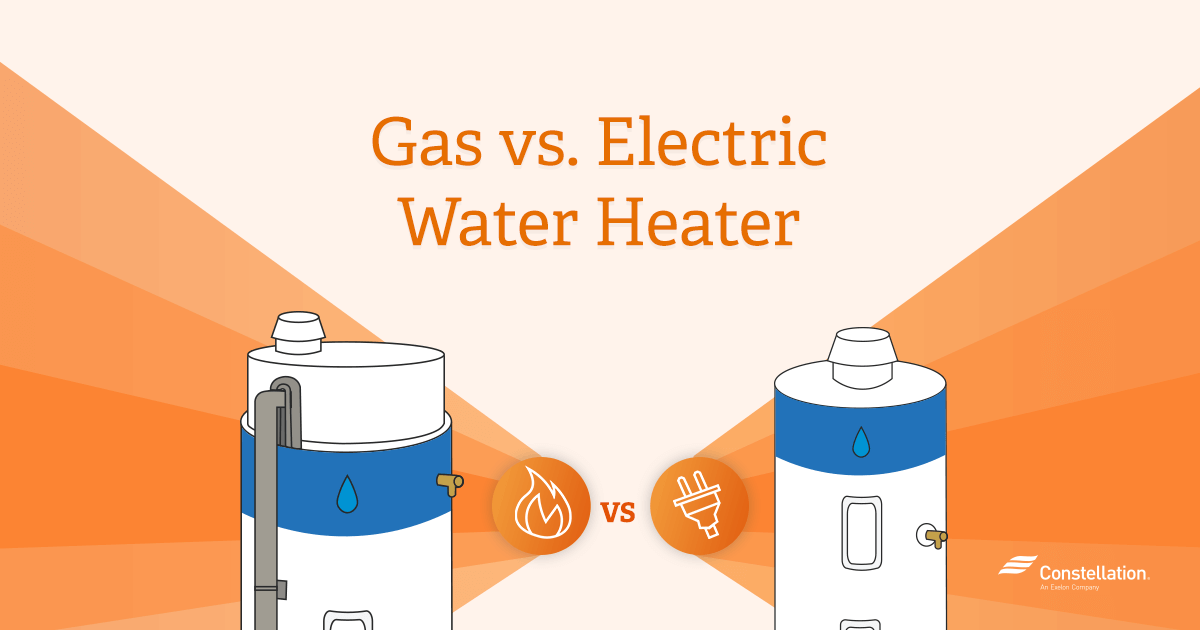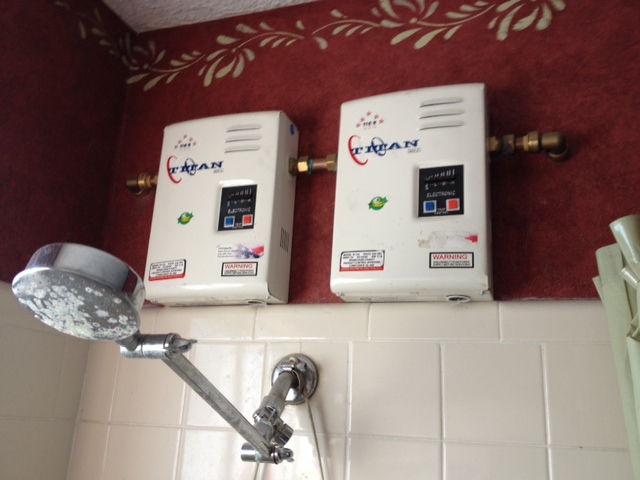Tankless water heaters can use either gas or electricity. The choice depends on your home’s infrastructure and preferences.
Tankless water heaters offer a modern solution for on-demand hot water. They heat water directly as it flows through the unit, providing endless hot water without the need for a bulky storage tank. Homeowners can choose between gas-powered or electric models, each with distinct advantages.
Gas models typically heat water faster and can be more cost-effective in the long run, while electric models are easier to install and require less maintenance. Understanding the differences between these options is crucial for making an informed decision. Choosing the right type ensures efficient energy use and meets your household’s hot water needs effectively.

Credit: blog.constellation.com
Page Contents
- 1 Tankless Water Heaters: An Introduction
- 2 Types Of Tankless Water Heaters
- 3 Comparing Gas And Electric Models
- 4 Pros And Cons Of Gas Tankless Water Heaters
- 5 Pros And Cons Of Electric Tankless Water Heaters
- 6 Making The Right Choice For Your Home
- 7 Installation Best Practices
- 8 Maintenance And Longevity
- 9 Conclusion
Tankless Water Heaters: An Introduction
Tankless water heaters are devices that heat water on demand. Unlike traditional heaters, they do not store hot water. This means you get hot water only when you need it. They provide a constant supply of hot water.
These heaters can use either gas or electricity as their energy source. Gas models heat water using a burner. Electric models use heating elements to warm the water.
When you turn on the tap, cold water travels through the unit. A heat exchanger warms the water instantly. This process ensures you have hot water right away.

Credit: jaketheplumbercompany.com
Types Of Tankless Water Heaters
Gas-powered tankless water heaters use natural gas or propane. They heat water quickly and efficiently. These heaters can provide hot water for multiple outlets at once. They work best in homes with high hot water demand.
Electric tankless water heaters use electricity to heat water. They are easier to install and require less maintenance. These heaters are ideal for smaller households or areas with lower hot water needs. They usually have lower upfront costs than gas models.
Comparing Gas And Electric Models
Energy efficiency is a major factor in choosing between gas and electric tankless water heaters. Gas models often provide higher efficiency ratings. They can heat water quickly and may lower energy bills. Electric models are usually easier to install. They require less space and no venting. This can save time and money.
Consider the installation costs for each type. Gas heaters need proper ventilation. This can increase installation complexity. Electric heaters are simpler to set up. They connect directly to the existing electrical system.
| Feature | Gas Models | Electric Models |
|---|---|---|
| Energy Efficiency | Higher efficiency ratings | Lower initial efficiency |
| Installation | Requires ventilation | Simple installation |
| Space Requirements | More space needed | Compact design |
Pros And Cons Of Gas Tankless Water Heaters
Gas tankless water heaters offer some great benefits. They heat water quickly and save energy. These models can provide hot water for many uses at once. They often have lower operating costs compared to electric models.
Another advantage is their longer lifespan. Gas models can last over 20 years with proper care. They also work better in colder climates.
On the downside, gas models require proper ventilation. This can lead to extra installation costs. They also need regular maintenance to keep them safe.
Gas lines must be available in your home. If not, installation can be difficult and expensive. Lastly, gas heaters can be less efficient during power outages.
Pros And Cons Of Electric Tankless Water Heaters
Electric tankless water heaters offer many benefits. They are usually more energy-efficient than traditional heaters. This means lower energy bills for homeowners. Electric models take up less space, making them perfect for small areas.
They also provide hot water on demand. This means you never run out of hot water during a shower. Installation costs can be lower than gas models in some cases.
Limitations exist for electric tankless water heaters. They may not heat water as quickly as gas models. This can be a problem for large families. Electric systems may require an upgraded electrical system in some homes.
Also, they may struggle with multiple hot water sources running at once. This can lead to lower water pressure.

Credit: www.greenbuildingadvisor.com
Making The Right Choice For Your Home
Choosing between gas and electricity for a tankless water heater is important. Think about your daily hot water needs. Do you have a large family or live alone? This affects your choice.
Cost implications also play a key role. Gas heaters usually have a lower operating cost. They can save you money on energy bills over time. Electric heaters often have a higher upfront cost but may require less maintenance.
Check local energy prices too. In some areas, electricity can be more expensive than gas. This affects long-term savings. Always calculate potential costs before making a decision.
Installation Best Practices
Choosing between professional and DIY installation for tankless water heaters is important. Professional installation ensures safety and proper setup. Technicians have the right tools and experience. They can also handle any potential issues. DIY installation can save money, but it carries risks. Mistakes may lead to water damage or accidents.
Safety and compliance are crucial in any installation. Local codes must be followed to avoid fines. Using the correct materials helps prevent leaks and hazards. Always check if a permit is needed before starting. Ensuring proper ventilation is essential, especially for gas models. This prevents harmful fumes from building up.
Maintenance And Longevity
Routine maintenance is key for tankless water heaters. Regularly check the filters and vents. Clean them to ensure proper airflow. Flush the system every year to remove mineral buildup. This helps maintain efficiency and prolongs life.
For troubleshooting, check the power source first. Ensure it’s connected and functioning. If there’s no hot water, inspect the temperature settings. Adjust as needed. Listen for unusual sounds; they may indicate a problem.
Pay attention to error codes on the display. They can guide you in identifying issues. If you notice leaks, check all connections for tightness. Regular checks can save you from costly repairs.
Conclusion
Choosing between gas and electric tankless water heaters depends on your specific needs and preferences. Both options offer efficient heating solutions. Gas models typically provide quicker heating, while electric units are easier to install. Evaluate your home’s infrastructure and energy costs to make the best choice for your situation.
